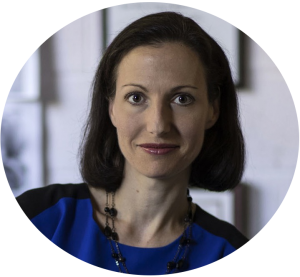 Does the thought of practicing open science give you sweaty palms? That’s a normal reaction for those of us who weren’t formally trained in the open-science methodology. The sweaty-palm reaction is really not that surprising since most of us have gotten where we are today because we’ve been meticulous in our work and tried to put out the best work we possibly could. In a nutshell, we tend to be perfectionists.
Does the thought of practicing open science give you sweaty palms? That’s a normal reaction for those of us who weren’t formally trained in the open-science methodology. The sweaty-palm reaction is really not that surprising since most of us have gotten where we are today because we’ve been meticulous in our work and tried to put out the best work we possibly could. In a nutshell, we tend to be perfectionists.
But science, like life, is far from perfect. It’s messy. And it often takes unexpected twists and turns. Once we embrace this reality and view research as a conversation starter, we’ll be able to move past the sweaty-palms stage.
My two guests today, Bethany Teachman, Ph.D. and director of the PACT lab at the University of Virginia, and Jeremy Eberle, a 4th-year graduate student in her lab share the steps they’ve taken to embrace the open-science mindset and open-science practices in their lab.
Dr. Teachman shares how she incentivized and nudged her lab to embraced open-science protocol. She used sticker charts as a visual reminder of their open-science goals. Yes, grad students could earn a star on the lab room chart when they did open science-y things. Eventually students were given specific goals to be met by a certain date. Everyone in the lab got involved in the endeavor to support open science. Today, those practices are routine in her lab.
 Part of getting comfortable with open-science practices is your mindset. It’s about valuing doing rigorous science, even when it gets messy. Open science is also about creating an environment where feedback is sought and embraced. It’s about learning along the way so that you can do even better science going forward.
Part of getting comfortable with open-science practices is your mindset. It’s about valuing doing rigorous science, even when it gets messy. Open science is also about creating an environment where feedback is sought and embraced. It’s about learning along the way so that you can do even better science going forward.
In this episode, you’ll learn…
- Why Dr. Teachman felt primed to embrace open science from her grad school experience, even though she wasn’t taught open-science protocol in school
- How to begin embracing open-science practices
- The barriers to embracing open science
- Why open science is about more than protocols and checklists — it’s about a culture that supports transparency and is non-defensive to feedback
- About the documentation process within her lab
- About the benefits of using GitHub in addition to OSF
- Why doing science according to your values can ease the sting of rejected work by publications
- Dr. Teachman’s suggestion of putting a pre-registration section on your CV
- How Dr. Teachman approaches collaborations with other researchers who are unfamiliar with open-science practices
Tips from the episode
On how to shift a lab towards open-science practices…
- Incorporate visual reminders about your lab’s open-science goals.
- Set concrete deadlines and expect participation from everyone in the lab.
- Get over the idea that “it has to be as near perfect as possible before I make it public.”
On incrementalism and where to start…
- Just start. It won’t be perfect, and you’ll get better at it.
- Embrace that science is about taking risks and figuring it out as you go along.
- As a first step, do a pre-registration of your hypothesis or share a data set.
On the documentation process for open-science projects…
- Use plain language for your comments within your code
- Include a section on deviations from the pre-registration
- Include a guide to open-data and materials
- Use an internal wiki
Links from the episode:
- RO1 trial – Mindtrails
- Alan Kazdin
- Center for Open Science
- PACT lab
- Pre-registration templates on OSF
- Twitter feed on CVs incorporating open science and related materials on OSF
- Tutorial on integrating Github and R
- ReproducibiliTea open science methodology reading groups
- Jeremy Eberle can be found on Twitter: @JeremyWEberle, and https://www.researchgate.net/profile/Jeremy_Eberle2 or https://osf.io/nyqux/
Research Matters Podcast is hosted by Jason Luoma, who can be found on Twitter @jasonluoma or Facebook at: facebook.com/jasonluomaphd. You download the podcast through iTunes, Stitcher, or Spotify. Reach out with suggestions, questions, or comments to researchmatterspod@gmail.com
Podcast: Play in new window | Download